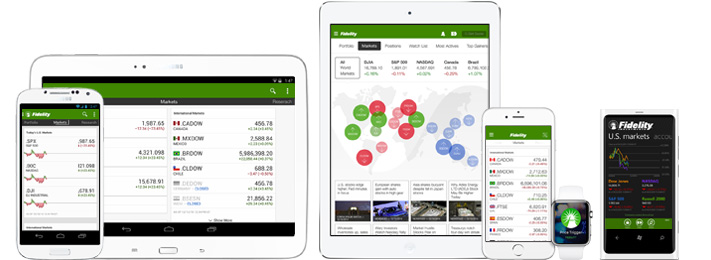Fidelity Go Joins Growing Number of Automated Investment Platforms
Fidelity Investments is testing an automated investment platform, Fidelity Go, joining the growing list of wealth management firms turning to robo-advisors
Boston-based financial services corporation Fidelity Investments is testing an automated investment platform, Fidelity Go, joining the growing list of wealth management firms turning to robo-advisors.
Automated investment platforms, or so-called robo-advisors, work on the premise that an algorithm can offer dependable financial advice for a fraction of the cost of a human advisor. A client completes an online questionnaire about their investment goals and risk tolerance, and then the algorithm recommends a low-cost investment portfolio tailored to the client’s needs.
Automated investment platforms are also intended to attract a new millennial investor, one who is comfortable banking with PayPal or Square, but has thus far been ignored by the traditional asset management industry. Robert Beauregard, a spokesman for Fidelity, comments: “We feel like this will appeal to people who really embrace the digital space, which is more and more people these days. It will be great for people who don’t have the skill, will or time really to manage their own investments.”
Robo-advisors also require much smaller lump sums and charge lower annual fees than traditional investment management firms, again making them attractive to the younger, digital market. Fidelity Go requires a minimum lump sum of $5,000, and is free to use at this stage, although it is expected that an annual fee of 0.1% to 0.2% will be charged eventually.
Automated investment management sees explosive growth
Although the traditional wealth management industry has not transitioned quickly to technology, over the last few years automated investment management has seen explosive growth.
Research by Deloitte reports that in 2014, US robo-advisors finished the year with $19 billion in assets under their management, up 65% from the year before. The report adds: “These new market entrants are still nascent, and represent a trivial amount relative to the $25+ trillion retail investable assets in the US. Digital, automated advice will likely become a standard expectation for the mass-affluent and mass-market segments. But big data and advanced analytics have the potential to dramatically expand the scope of robo-advice, incorporating financial planning into broader retirement, health, and wellbeing, and enabling quasi institutional research, which could then impact all investor segments.”
A number of start-ups are leading the way. Betterment, which launched in 2008 and has received $105 million in funding, and Wealthfront, which launched in 2011 and has received $129.5 million in funding, have already reached $3 billion and $2 billion in assets respectively. Nutmeg, which launched in 2013, is also growing fast, so far managing the assets of 50,000 clients. And last year, the San Francisco based FutureAdvisor, which manages $600 million in assets, was acquired by the $4.7 trillion wealth management giant BlackRock.

Betterment’s retirement account interface
And many more start-ups are launching on the scene: BondIT creates algorithm-based fixed income portfolios using machine learning and big data analytics; Walnut Algorithms uses advanced machine learning and mathematics to create quantitative investment strategies; and ETFMatic creates tailor-made, diversified portfolios at off-the-shelf prices, based on investors’ individual risk profiles. Funding the boom, last year VCs invested nearly $300 million in tech-money-managers.
The establishment is also joining the trend. Charles Schwab, which has $2.5 trillion under management, launched its automated service, Intelligent Portfolios, last year. Open to investors with $5,000, it had collected $4.1 billion assets by the end of the year. Vanguard Group has also launched a robo-service, Personal Capital, which combines automated investment with human advice. And Motif Investing, a Silicon Valley start-up which allows users to create portfolios of investment themes, has so far raised $126 million in funding with backing from Goldman Sachs and JPMorgan Chase.
Reportedly, the current leaders in the field have a combined $5.4 trillion in assets under management, while robo-advisors across the board are doubling the assets under their management every few months. But at the same time there are worries that too many of these robo-advisors are living off VC funding, rather than managing enough assets to be sustainable long-term. Wealthfront says that around 60% of its clients are under 35, with an average account size of a little under $100,000. To be successful, Wealthfront, and all the competition, will need to rely on these under-35s remaining loyal clients as they grow their wealth, rather than ditching them for a human advisor. Just one of the challenges ahead.
For the moment, Fidelity Go has only been made available to a few hundred company employees, but some customers will be invited to test the platform early this year before it goes public.
















There are no comments
Add yours